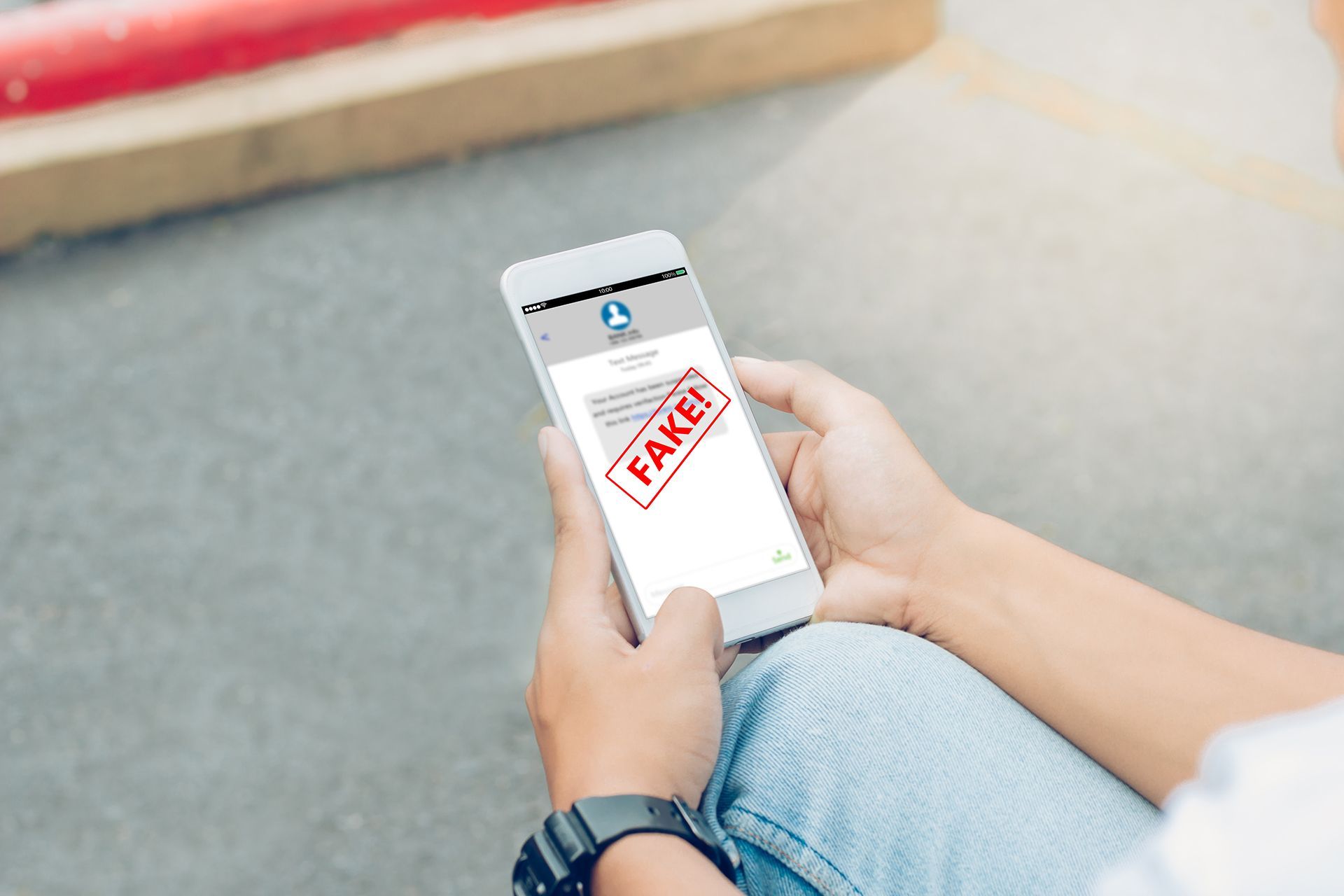Common Scams - How to Spot and Stay Safe
With scams becoming increasingly frequent and convincing, it’s more important than ever to stay alert. Fraudsters are constantly coming up with new ways to trick people into handing over money or personal details - often pretending to be someone you trust, like a bank, government agency or delivery company.
At CHAP, we’ve been hearing directly from clients who’ve been targeted by scammers - and sadly, some have been caught out. There are too many scams to list, but here are six of the most common scams around at the moment, along with tips on how to stay one step ahead.
1. DWP Winter Heating Payment Scam Texts
Scammers are sending texts that appear to be from the Department for Work and Pensions (DWP), asking older people to confirm their details or risk losing out on their Winter Heating Payment.
How to spot:
- Genuine government bodies won’t ask for your personal details by text or ask you to click a link.
- Look out for poor spelling or grammar, and suspicious links.
- If in doubt, contact the DWP directly using a verified number or website.
2. Fake Royal Mail or Courier Delivery Texts
You receive a text or email saying there’s a parcel waiting to be delivered, but a fee must be paid first. The link takes you to a fake website that captures your card details.
How to spot:
- Unexpected delivery texts, especially if you haven’t ordered anything.
- Requests for small payments (e.g. £1.99) to 'release' a parcel.
- Hover over or inspect links before clicking - real courier companies will never demand upfront fees like this.
3. Council Tax Refund or Rebanding Scams
Scammers pretend to be from your local council or a claims company and say you’re owed a Council Tax rebate. They then ask for your bank details or a fee to 'process' the refund.
How to spot:
- Councils don’t charge a fee to check your band or issue a refund.
- Never give bank details to cold callers or unsolicited emails/texts.
- If you're unsure, contact your council directly using details from their official website.
4. Fake Banking Fraud Calls or Texts
You’re told there’s suspicious activity on your bank account, and you're urged to transfer your money to a 'safe account'. The caller may sound very convincing and even know some of your personal details.
How to spot:
- Your bank will never ask you to move your money or share full PINs/passwords.
- Don’t rely on caller ID - scammers can often spoof legitimate numbers.
- Hang up and call your bank using a trusted number.
5. HMRC Tax Refund or Fine Scams
You receive a message or call claiming you’re due a tax refund or that you owe HMRC money and will face legal action if you don’t pay immediately.
How to spot:
- HMRC doesn’t contact people this way and will never demand urgent payment via text or call.
- Scare tactics and urgency are red flags.
- Check by logging into your official HMRC online account.
6. Energy Bill Discount Scams
Fraudsters claim you’re eligible for a government grant or energy discount and ask you to fill in a form with your personal or banking information.
How to spot:
- The government doesn’t ask for personal information this way.
- If you’re unsure, check the official Government website for schemes and announcements.
- Never click links in unexpected emails or texts claiming to be from Ofgem or your energy supplier.
Other Scams to Be Aware Of
There are many more scams out there - too many to list - but here are just a couple of others to watch out for:
Microsoft Tech Support Scam
Cold callers claim to be from Microsoft and say there’s a problem with your computer. They’ll ask you to download software so they can 'fix' it remotely, then try to charge you hundreds of pounds for fake repairs or software that doesn’t exist.
- Never allow remote access to your computer unless you’ve contacted a verified support service yourself.
WhatsApp Family Scam
You receive a message that appears to be from your son, daughter, or another family member saying they’ve lost their phone and need money urgently.
- Always call or speak to the person directly before sending money - don’t rely on text alone.
Where to Report
Scams
In Scotland, report all scams to Advice Direct Scotland by calling 0808 164 6000 (Mon-Fri 9am-5pm) or online at www.consumeradvice.scot
Fraud
If you have been the victim of fraud, report it to Police Scotland on 101 or 999 in an emergency.
Suspicious Emails
You can forward suspicious emails to: report@phishing.gov.uk and send links from websites which you think are trying to scam the public to the National Cyber Security Centre's scam website reporting service at: www.ncsc.gov.uk/section/about-this-website/report-scam-website
Suspicious Text Messages
If you receive a suspicious text message you can forward it to 7726. The free-of-charge ‘7726’ service enables your provider to investigate and take action if malicious content is found.
Protect Yourself
- Take your time - scammers rely on panic and urgency.
- Never click on suspicious links - always go directly to the official site.
- Stay informed - follow CHAP on social media for weekly updates through our Scam Watch series.
The best defence against scams is awareness - so let’s keep each other informed and one step ahead.
If you, or anyone you know, is facing issues related to housing, benefits or debt, please call Freephone
030 0002 0002 or use the
Live Chat feature on our website. All our services are FREE, confidential and impartial.





Share this story, choose your platform





